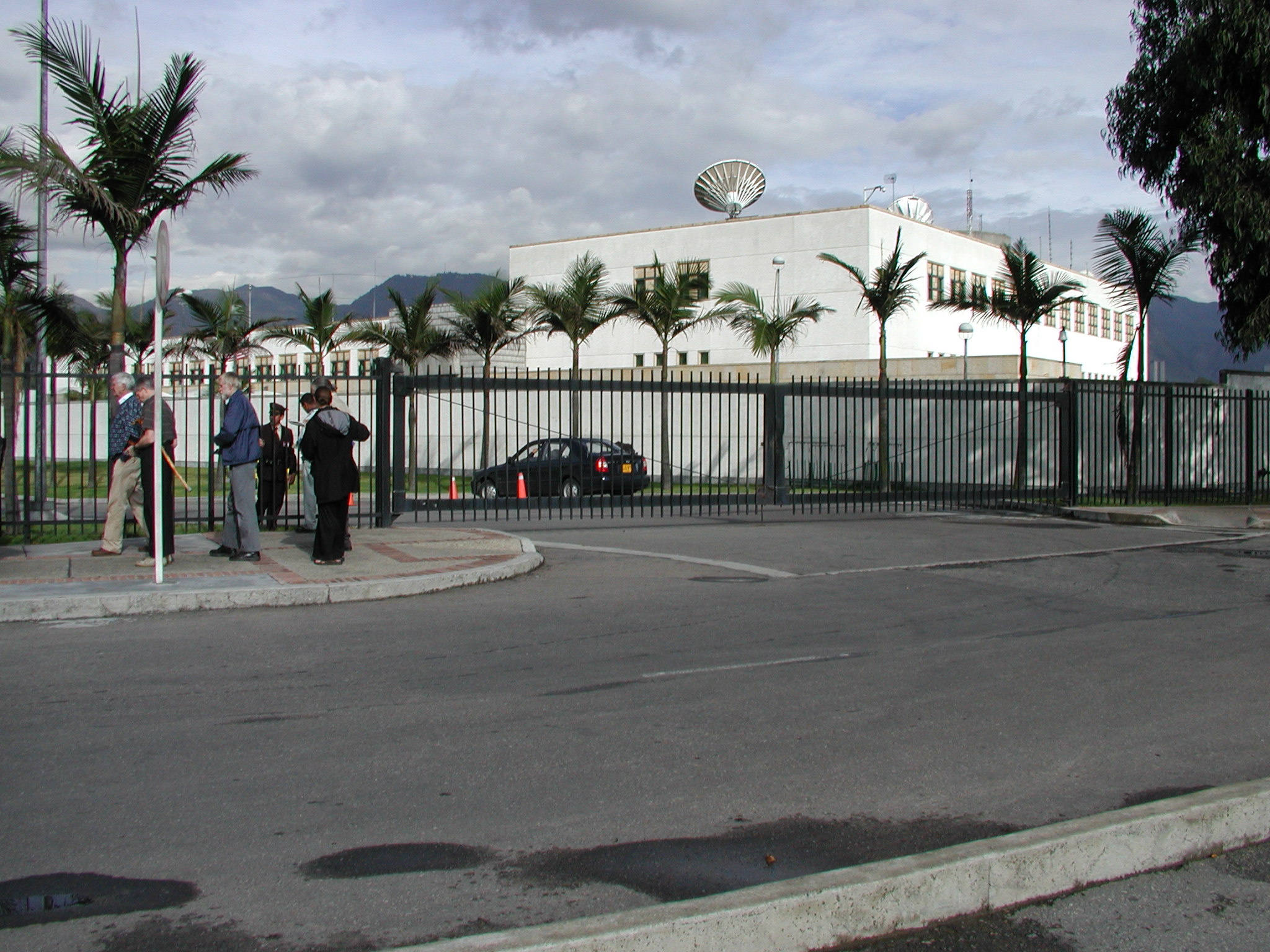
The US Embassy here is the 2nd largest in the world, behind Iraq, with about four thousand people. Colombia receives the 3rd largest amount of foreign aid from the US, behind Israel and Egypt. One thing I learned is that the “mission” (the embassy) determines many of the particulars of how the money is spent, so even though they are given specific policies to adhere to, they have some power in how Plan Colombia actually plays out in Colombia.
We came with 4 or 5 topics of discussion, including visas for church delegations from Colombia, the free-trade agreement, drug policy, and human rights abuses by paramilitary. Wilmer managed to get a word in most of the discussions, with his basic messages being:
- Our drug policy doesn’t work – cocaine prices are the same as they’ve been the last few decades.
- The economy may go up as a whole, but that doesn’t seem to make a dent in poverty.
- Fumigation is stupid and dangerous.
- The free trade agreement will be a disaster for poor Colombians.
I asked about whether the US agrees with the Colombian government when they claim there are no paramilitary left in the country, which is blatantly false. She gave a very clever answer: There are no paramilitary, because they’ve redefined what paramilitary means. They only count as paramilitary if they are “not political”, which apparently means actively trying to overthrow the state government. This, of course, has never been the intent of the paramilitary.
Nonetheless, paramilitary do control certain regions, grow cocaine, and sell it to finance themselves. The last time I checked, controlling some area of geography involves governing of some kind, which makes it political. The answer is about as useful as saying we don't torture people because our definition of torture is "things we don't do."
So, the problem remains that the Colombian government is only interested combating guerillas, and sweeps the paramilitary problem under the rug by claiming it does not exist. This apparently has the blessing of the current administration.
Nonetheless, it is important to remember that the embassy folks are just people doing their jobs. They want a peaceful Colombia as much as anyone - it is just that I totally disagree with the policies they must follow to try to accomplish it. They did offer to help if there are any human rights abuses that happen to the sister churches we have relationships with, and I believe they are sincere in that.

No comments:
Post a Comment